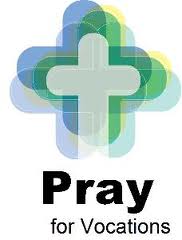 Last week the editors of the National Catholic Register offered the following response to the question, “How do I know what my vocation is?” In doing so, they quote Servant of God John A. Hardon, the beloved founder of the Institute on Religious Life.
Last week the editors of the National Catholic Register offered the following response to the question, “How do I know what my vocation is?” In doing so, they quote Servant of God John A. Hardon, the beloved founder of the Institute on Religious Life.
“A religious vocation is a special grace that God gives to certain persons, calling them to a life of the evangelical counsels,” wrote Jesuit Father John Hardon, whose canonization cause is under way, as chronicled at EWTN.com. “What are some typical features of a true vocation to the religious life? I would emphasize especially three: 1) a strong faith in the Catholic Church and her teaching, shown by a firm loyalty to the Vicar of Christ; 2) a love of prayer, at least the capacity for developing a desire for prayer; and 3) a readiness to give oneself to a life of sacrifice in the footsteps of Jesus Christ. . . . I believe that if every prospective candidate were to make a private retreat, even for a few days, under a competent priest, it would help immensely. The retreat could be especially geared to a person who thinks that he or she has a vocation to the religious life. Then, during the retreat, in an atmosphere of silence and prayer, ask God to enlighten one’s mind as to whether or not he is calling the person to a life of Christian perfection. This, in fact, is one of the original purposes of the Spiritual Exercises of St. Ignatius: to discover and decide on one’s state of life.”
Prayer and preparation are also necessary to discern marriage.
“So that the ‘I do’ of the spouses may be a free and responsible act and so that the marriage covenant may have solid and lasting human and Christian foundations, preparation for marriage is of prime importance,” the Catechism states (1632). “The example and teaching given by parents and families remain the special form of this preparation. . . . It is imperative to give suitable and timely instruction to young people, above all in the heart of their own families, about the dignity of married love, its role and its exercise, so that, having learned the value of chastity, they will be able at a suitable age to engage in honorable courtship and enter upon a marriage of their own.”
As the Catechism also states, “Both the sacrament of matrimony and virginity for the Kingdom of God come from the Lord himself” (1620). “It is he who gives them meaning and grants them the grace which is indispensable for living them out in conformity with his will.”